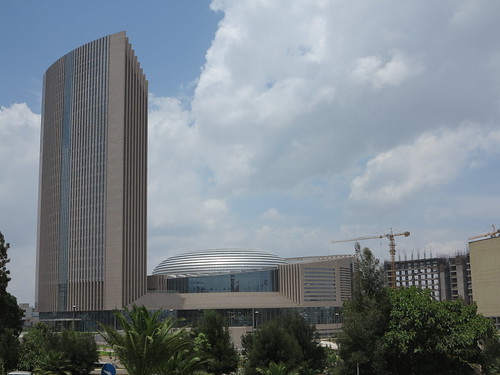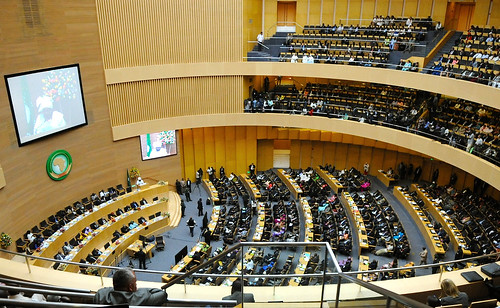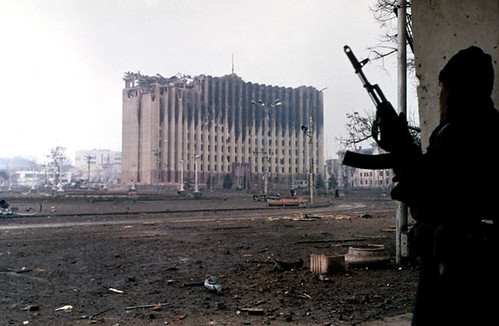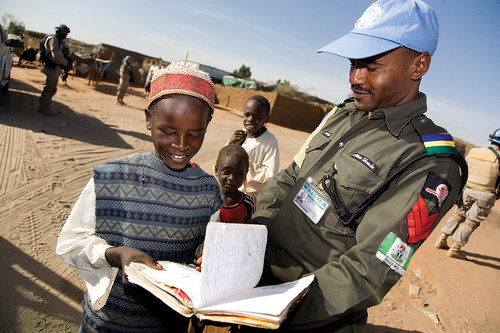
African solidarity and autonomy were in the spotlight in May when the African Union (AU) celebrated the 50th anniversary of the establishment of the Organisation of African Unity, the AU’s predecessor. These ideals were expressed most strongly in the African leaders’ opposition to the International Criminal Court (ICC), especially its cases concerning Kenya, during the 21st Ordinary Session of the Assembly of Heads of State and Government in Addis Ababa from 26 to 27 May.
As has always been the case with AU decisions on the ICC and international justice, the continent’s leaders began by reiterating their ‘commitment to combating impunity and promoting democracy, the rule of law and good governance throughout the continent’. They also acknowledged Uganda’s presentation on behalf of the eastern African region on ‘international jurisdiction, international justice and the International Criminal Court’ – a hint perhaps of this region’s influence over the tone of the summit’s decision.




